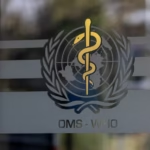In a significant move that reignited discussions around the origins and handling of the COVID-19 pandemic, former U.S. President Donald Trump’s White House launched a new website aimed at exposing what it describes as failures and misinformation spread by global health authorities and political leaders. The website draws sharp criticism toward the World Health Organization (WHO), Dr. Anthony Fauci, and President Joe Biden, all of whom played key roles in shaping the U.S. and global response to the pandemic.

More about COVID-19
A major highlight of the website is its emphasis on the controversial theory suggesting the coronavirus may have originated from a laboratory leak in China. This theory, while widely debated and often disputed, has remained a central talking point for those critical of China’s transparency during the early stages of the global health crisis. The Trump administration, through this newly introduced platform, has reignited questions about the Chinese government’s role in the pandemic and the accountability of international health organizations.
In addition to its focus on the virus’s origins, the website directly accuses Democratic former President Joe Biden, Dr. Anthony Fauci — the long-serving director of the National Institute of Allergy and Infectious Diseases — and the World Health Organization of failing the public by promoting what it calls inaccurate information and ineffective health strategies. According to the site, these missteps contributed to unnecessary economic hardship, personal loss, and global confusion during the height of the pandemic.
Beyond criticism of leadership, the website challenges the scientific and ethical basis of widely adopted pandemic safety measures. Social distancing guidelines, mask mandates, and prolonged lockdowns are all targeted by the site, which argues that these actions inflicted long-lasting harm on individuals, small businesses, and national economies. The administration’s position, as outlined on the website, suggests that alternative strategies could have limited the virus’s spread without the social and financial fallout experienced worldwide.
Shortly after assuming office in January of his term, Trump moved forward with the decision to withdraw the United States from the World Health Organization. This marked a major shift in U.S. foreign policy, as the nation had long been the WHO’s largest financial supporter. The process, which would take a full year to complete, was met with both domestic and international backlash, deepening the divide between the Trump administration and global health authorities.
At the time the website was published, neither Dr. Fauci, President Biden, nor the World Health Organization had released any official statements responding to the pointed allegations. Their silence has left the conversation wide open, fueling speculation and public debate over the accusations laid out by Trump’s team.
Adding further to the controversy, Trump’s comments about Fauci’s personal safety became another focal point. After reports surfaced that Dr. Fauci had faced personal threats during his time as the face of America’s COVID-19 strategy, Trump suggested that Fauci should be responsible for arranging his own private security, hinting that federal protection might no longer be warranted. This remark stirred sharp reactions across political circles and media outlets.
In a related development, the CIA also entered the discussion around the origins of COVID-19. In January, a spokesperson for the intelligence agency confirmed that the agency had assessed the available evidence and found a lab-related origin to be slightly more likely than a natural transmission event. However, the CIA was quick to clarify that their confidence in this conclusion remained low, stating that both possibilities — a laboratory accident or natural spillover — were still plausible scenarios based on current intelligence.
While the Trump administration and its supporters continued to push the lab-leak narrative, the Chinese government has consistently pushed back against the theory. Officials in Beijing have stressed their commitment to supporting international research into the origins of COVID-19 while firmly rejecting any claims suggesting the virus was leaked from a Chinese laboratory. According to Chinese authorities, such accusations are politically motivated and lack both scientific basis and credible evidence.
Beijing has publicly condemned the lab-leak theory as baseless, calling on the global community to avoid what it describes as “politicization of the pandemic.” Chinese officials have further emphasized that they have provided full cooperation with global health experts, though critics argue otherwise.
As the debate over COVID-19’s origins and management continues to evolve, the launch of Trump’s new website has once again amplified the political and scientific controversies surrounding the pandemic — ensuring this conversation remains far from over.
